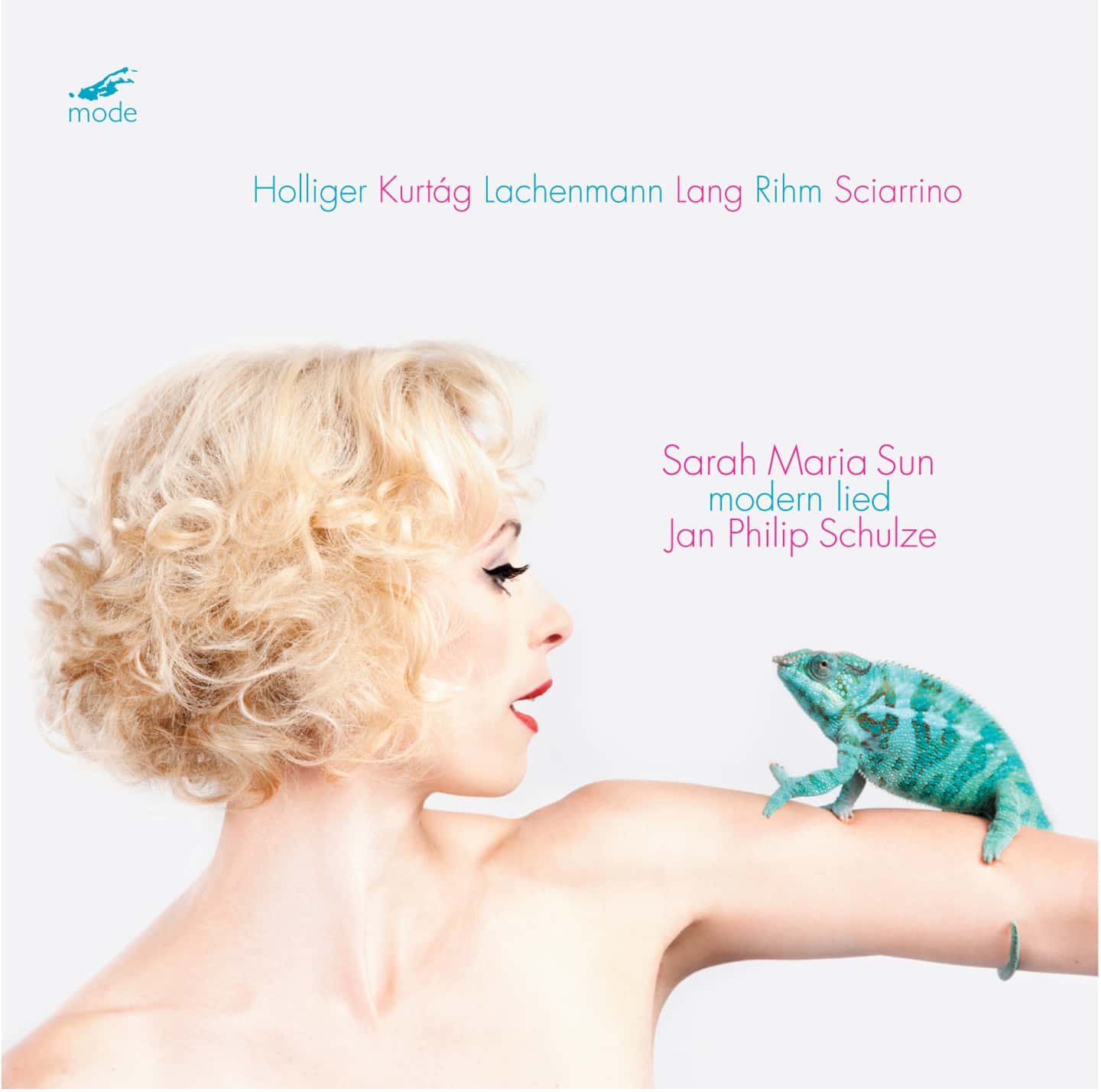“Modern Lied”
Sarah Maria Sun, soprano
Jan Philip Schulze, piano
Heinz Holliger (b.1939)
Sechs Lieder nach Gedichten von Christian Morgenstern (1956/57) •
Salvatore Sciarrino (b.1947)
Due Melodie (1978) •
Helmut Lachenmann (b.1935)
Got Lost (2007–08) •
György Kurtág (b.1926)
Requiem po drugu op. 26 (1982–87)
Wolfgang Rihm (b.1952)
Ophelia Sings (2012)
Bernhard Lang (b.1957)
Wenn die Landschaft aufhört (2015) •
• First Recording
The idea for a recital of “Modern Lied” came about over breakfast following the first concert Sun and Schulze performed together. Realiz-ing that they enjoy the same things, Schulze said: “Our next program should be harder. It should be the hardest program ever. We should put some of the greatest contemporary masterpieces of Lied in one program. It should be just insanely beautiful and hard and most of all insanely good. No old stuff included.” This recital is the result of that idea.
The earliest work is Holliger’s beautiful cycle on Morgenstern texts. It forms a bridge from traditional lieder to the modern. The Morgenstern Lieder have a completely different sense of harmony, very soft, somewhere between Debussy, Berg and Ravel.
Sciarrino’s Due Melodie are a virtuoso piece for piano with vocal accompaniment. As Salvatore is a collector of autographs and first-editions, he found the poem by Gianbattista Marino in two different versions by chance: in one it was called Occhi stellanti (starry eyes), in the other Occhi stillanti (sparkling eyes). This subtle difference moved him to create two different settings of the poem.
Lachenmann’s Got Lost includes the sonic effects of signing into the piano, the use of percussive sounds made by the mouth (and piano), among others. His goal was to make a lied which avoids outright expression. To achieve this he weaves texts of Nietzsche (expressed almost without exception only with shouts), Fernando Pessoa (whose text is diametrically opposed to Nietzsche), and from an elevator sign he noticed about someone’s laundry basket which had “got lost.”
Kurtág and Rihm: both have written Lieder for decades and have short, dark song cycles which the artists wanted to have on this CD. Ophelia sings comes from Shakespeare’s original stage direction, Rihm uses a freely rambling, sleepwalking tonal language with a finely weaved piano setting for Ophelia’s deluded singing in Hamlet. Kurtág’s chromatic four Songs of Loss are set to texts by Russian poet Rimma Dalos. They are extremely concise, with not one note too many.
Bernhard Lang’s When the Landscape Ceases sets the stream of consciousness text by Dieter Sperl in a new kind of rap-singing, somewhere between the rhythm of speech and a pointillistic style of intonation.
The liner notes by Sarah Maria Sun includes interviews with Holliger, Lachenmann and Lang specifically for this release.
Soprano Sarah Maria Sun performs music of the 16th–21st century, but specializes in the music of today. Besides Lied, Opera and Oratorio her repertoire includes more then 700 pieces from the 20th and 21st centuries. From 2007-2014 she was the first soprano of the Neue Vocalsolisten Stuttgart, a chamber ensemble of seven singers, who has been one of the most important pioneers of contemporary music for 30 years.

